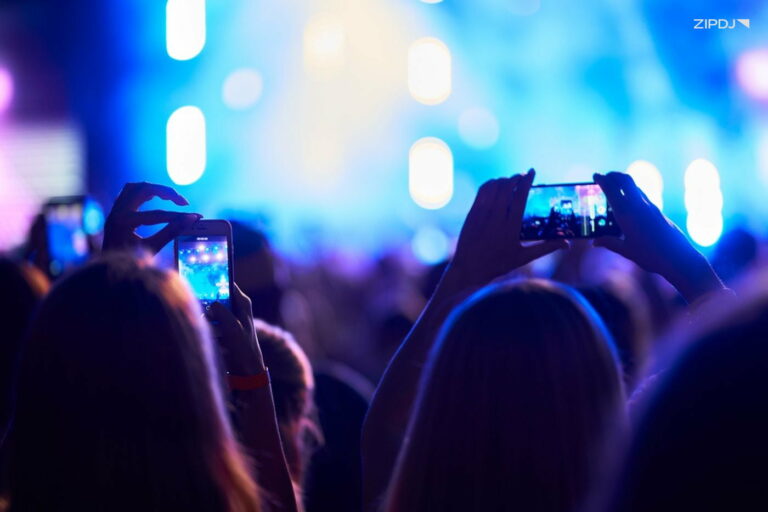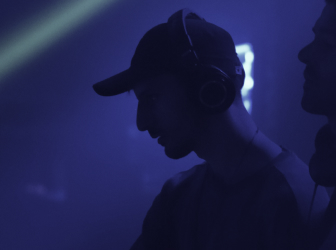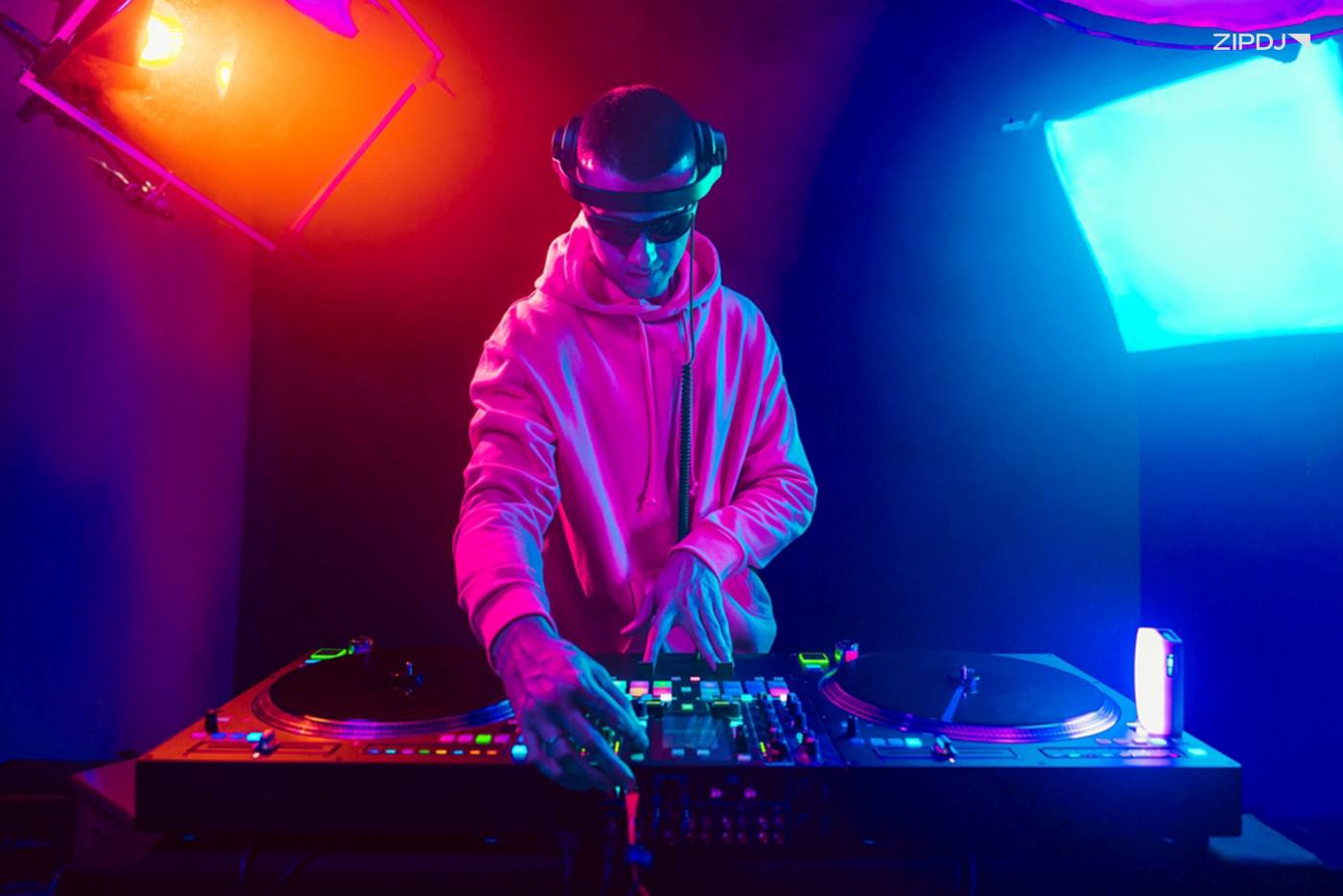How DJs Have Blown Up From Social Media & The Music Industry

The role of social media continues to impact all aspects of life, and its role in promoting content for aspiring DJs is no exception.
Social media is truly transformative, whether it is for sharing new DJ mixes or networking with other artists and music industry professionals.
Continue reading, and we’ll break down how DJs have blown up from social media by taking advantage of its broad range of tools and features.

How DJs Have Blown Up From Social Media
Whether you’re a newcomer to DJing or a DJ with years of experience, the importance of social media for success is impossible to ignore.
It’s a powerful tool for connecting with fans and established artists, with the power to transform your pastime into a full-time successful career.
So, whatever your level of experience, here’s everything you need to know about how DJs have blown up from social media in 2025:
1. Sharing Music Content
The first and most obvious way in which social media and music have combined to help DJs explode is through their ability to share music content.
With streaming services already offering ways for new music discovery opportunities, DJs can utilize these along with social media platforms to reach new fans.
Indeed, streaming’s impact on DJ culture has allowed DJs to interact with fans in a live context, creating an instant feedback loop of engagement.
While sharing DJ mixes is the most common way this is achieved, it isn’t restricted to platforms such as Twitch and Mixcloud for hosting sets.
High-quality video from smartphones and live streaming services on Facebook makes instantaneous sharing of mixes incredibly easy.
2. Optimizing Social Media Platforms
Social media’s influence on the art of DJing extends beyond the ability to share DJ mixes, with each platform featuring unique ways to leverage content.
In addition to sharing mixes, social media outlets such as TikTok and Instagram allow for quick sharing of shorter videos, such as snippets of live sets.
DJs can also post everyday events, such as photos, comedy sketches, and lifestyle insights, to which their Instagram followers can respond in real time.
Likewise, music videos and other visual content can be shared with YouTube subscribers to enhance marketing campaigns and generate word of mouth.
With TikTok launching official charts, social media remains dominant in helping new and established artists break through into the music industry.
3. Multimedia Content Creation
Music fans use their social media platforms of choice for up-to-date DJ sets and as valuable resources for informative content.
This gives aspiring DJs additional scope for using social media platforms for promotion, from posting behind-the-scenes content to educational material.
Studio sessions, equipment reviews, and production tips to help dedicated fans create music are just some examples of content that complements DJ sets.
DJs can also earn money through their online presence, which offers DJ courses and tutorials that help new artists understand the technology.
Additionally, starting a DJ podcast allows DJs to interact with their favorite artists and other DJs to discuss new releases and music industry trends.
4. Engaging With Fans
Whether sharing their latest DJ mixes or posting lifestyle content, social media is a great way to find dedicated fans and build a community.
Every social media platform includes the option to add comments, and proactive DJs can use this system to foster relationships and engage with fans.
This communication also brings up opportunities for user-generated content from loyal fans, such as hosting contests and giveaways to encourage engagement.
Understanding the dos and don’ts of DJ etiquette is vital to consistent growth through content moderation and incentivizing engagement.

5. Creating Viral Moments
Going viral online is the golden ticket to success, reaching millions of potential fans and rapidly expanding artists’ dedicated communities.
While crafting viral moments can be difficult, successful DJs have used several tried and trusted strategies to achieve this.
This begins by creating content viewers gravitate toward, such as fun challenges that followers can share online with friends and family.
Dance challenges have a track record of success. They help the host stay relevant as a DJ while significantly increasing their Facebook followers.
6. Collaborating With Artists
Collaboration with other DJs and musical artists significantly improves a DJ’s chances of breaking into the music business.
By working with independent artists on projects, DJs can more effectively market themselves online by drawing on a larger pool of followers.
This can range from partnering with DJs to host events at local venues to bringing singers or musicians to perform at your next DJ gig.
DJs who are considering becoming producers can also gain more followers on social platforms by collaborating with music artists on new tracks.
Whatever approach DJs take for collaboration, the key benefit of sharing fan bases and increasing their online reach remains the same.
7. Understanding Data & Analytics
The most successful artists utilize platforms to analyze the metrics of success as much as they use them to post content and interact with fans.
Whether you’re referencing the data analytics delivered by the social media platform or using external tools such as Socialblade, metrics are vital to success.
They allow DJs to track content performance and see which posts get the most attention, avoiding underperforming content.
By tracking metrics over time, data analytics can assist with effective DJ time management, promotional efforts, and overall content creation priorities.
8. Recognizing New Trends
Social media platforms remain some of the industry’s go-to resources for keeping up with the latest music trends and hot releases.
DJs and fans can use these platforms to discover everything from where their favorite artists live to upcoming music festivals and tours.
Additionally, social media remains one of the best resources for emerging DJ technology and insights into how it impacts the art of DJing.
This includes virtual gigs, the rise of augmented reality, and the role of artificial intelligence in generating playlists and stem separation.
9. Managing Burnout
While social media continues to play a vital role in DJing’s success, it’s also important to understand the importance of managing burnout.
Just as social media can be a great tool for success, it can also be used as a tool for avoiding poor DJ mental health and other negative health consequences.
DJs who are experiencing burnout can use social media to build friendships and share their problems with other DJs who have had similar experiences.
Indeed, while social media’s negative impact is widely understood, its potential use for positive mental health and well-being shouldn’t be overlooked.
10. Building Professional Relationships
Just as social media is a great way to connect with fans, it’s also a powerful tool for getting your music heard by professionals in the music industry.
Everyone from record companies to venue and festival promoters has an online presence they use to find and distribute music.
DJs frequently include social media platforms in their press kits and websites as a starting point for conversations with industry professionals.
Likewise, using hashtags can also help DJs capture the attention of industry insiders by providing insights into current topics and trends.
Summary
Social media’s role in promoting artists of all types has increased significantly in recent years and shows no signs of slowing down.
Artists’ use of platforms such as Facebook, TikTok, YouTube, and others has led to countless success stories.
Following this article’s advice, DJs can confidently use their social media platforms and create long-lasting connections with fans.
Not a member ?
Join Today for Unlimited Music Downloads. Visit zipdj.com for more information.



